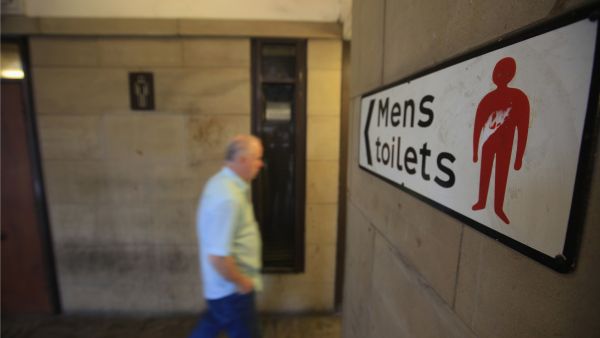Walking the streets of Sana'a, your eyes are in constant motion as they dart from one scene of commotion to another, but people are complaining there is one sight that no one wants to see – someone urinating on the street.
While not only an eyesore and a public health risk, such incidence trouble shop owners and local residents, who are often the ones to witness the act and are at a loss as to what to do.
Marzook Masoud, a resident of Al-Tahrir, said he often sees people relieving themselves in the open in Al-Tahrir Square. He said the owners of houses and shopping centers feel powerless to stop the situation.
“We wrote notices on the walls in order to avert people from urinating in such places. We also complained to the municipality. Now I don’t know what the solution is,” Masoud said, whose house is next to a bus station where the problem really manifests itself.
Ali Saeed, the proprietor of a shopping center in Al-Hasaba, said he has suffered financial losses because customers have been driven away by the stench outside his store due to public urination. His store is near a hidden narrow lane, which he says encourages the act because people believe they are unseen.
Public urination is often done covertly making perpetrators harder to catch.
“Those who urinate on the street tend to do that so in the early morning or late at night. This is a problem,” said Mohammed Hamoud Othman, the general manager of Al-Thwara district.
Othman said the phenomenon is a big issue in his area even though the district administration has installed many public rest rooms, particularly near the Hasaba market entrance.
However, he believes people are urinating in public now more because many of the rest rooms were damaged during the 2011 uprising.
Dr. Mohammed Al-Asbahi, the general director of environmental health in Sana’a doesn’t think this is an excuse.
“Many of the public rest rooms that were available prior to the events of 2011 were shut down. But, recently these public rest rooms have been restored,” he said.
Al-Asbahi, said low awareness of the bad effects of urinating in the street is the root of the problem. He wants media campaigns to play a part in educating people and wants more posters and brochures to be distributed in certain areas that highlight the detrimental impact of urinating in public places.
Al-Asbahi thinks there are many things that can be done to curb people’s willingness to urinate in front of others. He says mosques can help by opening their rest rooms during the daytime.
He also wants business owners to regulate and be vigilant, making it known if they see someone relieving themselves near their shop.
In addition, he wants security forces to step up their efforts and hold someone over for two hours if they are caught urinating in public.
Finally, he thinks the private sector also needs to do its part.
“We requested that the owners of restaurants, cafes and parks contribute to building public rest rooms so as to mitigate this trend,” he said.
Despite the city's efforts to keep one tourist attraction – the Old City – clean, public urination remains an issue.
Khalid Al-Aqwa, the director of Old Sana’a, said they have strived to maintain Bab Al-Yemen's reputation as a pristine place by paving streets and growing trees. But, worried about distorting the picturesque scene, they hesitate to install public bathrooms.
Instead, Al-Aqwa says it is up to citizens to take pride in their city and refrain from acts that contribute to its decline like public urination.
“Sana’a is the face of Yemen. We make a plea to all Yemenis to preserve it and be honorable for everyone,” he said.
Have your say: Do you think it's understandable that people are taking the call of nature into their own hands? Should the government do more to ensure public health? Or would spending on public toilets be a waste?








